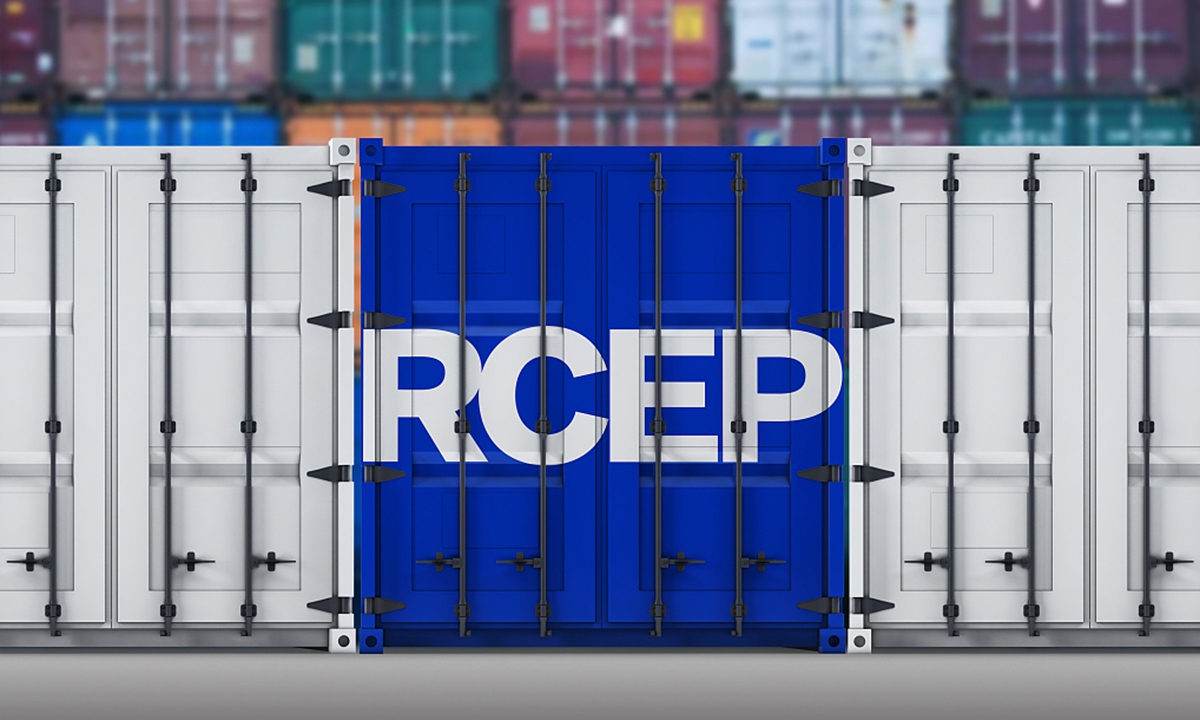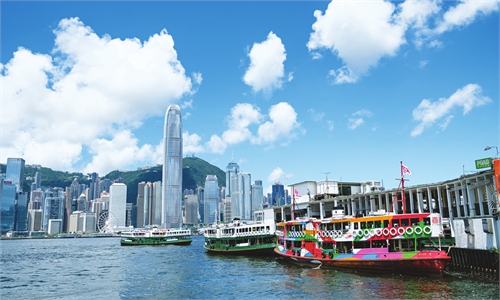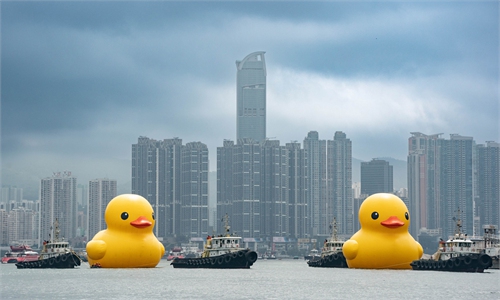RCEP implementation progresses to new level as 2nd ministerial meeting closes in Indonesia

RCEP Photo:VCG
The second ministerial meeting of the Regional Comprehensive Economic Partnership (RCEP) was held in Semarang, Indonesia on Monday. All parties reached multiple agreements on further accelerating the implementation of rules under the RCEP, China's Ministry of Commerce said on Wednesday.
The meeting was intended to consolidate the progress that has been achieved, and further amplify the effect of mutually beneficial policies under the RCEP, including tax reductions, e-commerce facilitation and intellectual property protection, Da Zhigang, director of the Institute of Northeast Asian Studies at the Heilongjiang Provincial Academy of Social Sciences, told the Global Times on Wednesday.
As the RCEP entered into force in the Philippines on June 2, the world's largest free trade pact became effective for all 15 members. During the ministerial meeting, all parties hailed the current progress and pledged to create more development opportunities for enterprises of RCEP member countries and facilitate regional economic integration.
Chinese Vice Commerce Minister Li Fei said during the meeting that the full implementation of the RCEP has important meaning for regional countries' economic growth and supply chain security. "China hopes all parties can reach the agreement for new members' registration and participate in RCEP-related business events," said Li.
Li also attended relevant meetings between China and other member countries of the RCEP and the Association of Southeast Asian Nations (ASEAN), and reached multiple agreements in the sectors of building upgraded China-ASEAN free trade zones, regional supply chains and industrial chain cooperation, and multilateral trade system protection.
"The implementation of the RCEP in the Philippines demonstrated that a comprehensive and multilateral free trade network has been formed, and this will greatly boost business communication among member countries," Zhou Shixin, director of the Institute for Foreign Policy Studies at the Shanghai Institute for International Studies, told the Global Times on Wednesday.
Zhou took a positive view of current progress and future development of the RCEP, and said that the pact will be a major driver of regional economic growth amid global headwinds.
According to China's General Administration of Customs, trade between China and ASEAN members reached nearly $519 billion in the first seven months of 2023.
Analysts said the RCEP will expand trade between China and ASEAN, which are each other's largest trade partners, and provide strong support for China's second-half economic growth.
On July, Hong Kong Special Administrative Region Chief Executive John Lee Ka-chiu started a visit to Singapore, Indonesia and Malaysia, seeking more cooperation opportunities with these three ASEAN members while winning their support for Hong Kong's accession to the RCEP.
"Aside from traditional merchandise trade, the RCEP will boost the development of regional industry chains and investment, and simulate domestic markets to meet overseas demand," said Da.


